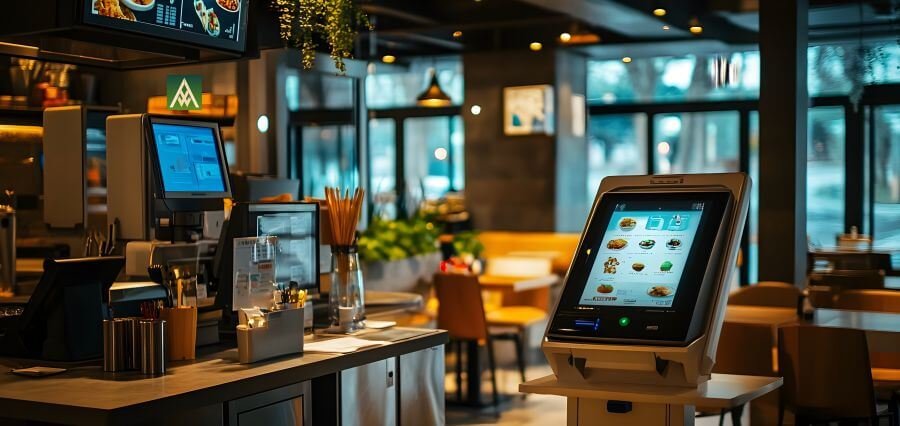Code Meets Concierge
A central shift in hospitality is occurring where advanced, data-driven technology is permeating all areas of guest service. Whether through smooth check-in or hyper-personalized in-room experiences, technology is not only making our lives easier but also transforming guest expectations, operational efficiency, and delivery of services. Technology in the hospitality industry is also becoming a key point of differentiation as world travelers become more technologically aware and able to distinguish the success of the ventures in this field. This article discusses how technology in the hotel sector is improving the guest experience and poses both opportunities and challenges to the hospitality industry.
Seamless and Contactless Check-Ins
Conventional hotel check-ins usually require guests to wait in queues and fill out forms, which is time-consuming and stressful. The scenario has completely changed with the invention of mobile check-ins. Hotel apps allow guests to check in, choose their rooms, and even open doors with digital keys on their phones. The change also makes check-in faster, in addition to being rated with health and safety issues due to reduced physical interaction.
Smart Rooms for Personalized Comfort
In-room technology is no longer a basic amenity. The hotels currently have smart rooms to enjoy the controlled lighting, temperature, and entertainment systems by voice commands, or even mobile app usage. This amount of customization increases comfort and convenience as guests can personalize their space as per their convenience. Also, intelligent sensors can optimize the room conditions when no guests are present, which will drive energy efficiency.
AI-Powered Concierge Services
Artificial intelligence is central to innovation in guest services. Virtual assistants and chatbots powered by AI respond to guest requests instantly 24/7, help them book services, and customize recommendations. These AI-powered systems use the interaction with guests and train themselves to respond better and make the experience more personal. As an example, Hilton’s AI concierge, called Connie, can provide answers to more than 10,000 frequent queries, making guests satisfied and increasing the productivity of their operation.
Immersive Experiences with VR and AR
Augmented reality (AR) and virtual reality (VR) technologies are transforming the guest experience by offering interactive and immersive pursuits. By enabling the potential guest to virtually tour the hotel room and facilities before a booking, VR can provide a realistic impression of what to expect. AR can be used to improve the experience of being on site through digital information projected over the real-world setting, like interactive maps or historical texts about the site. These technologies are not only interactive with guests but also aid in navigation and spreading information.
Robotics and Automation in Service Delivery
Hospitality is increasingly implementing robots and automation to simplify their operations and deliver services. Examples of tasks assisted by AI-powered robots include room delivery to guest rooms, meet-and-greet at the lobby, and multilingual services. Such robots can not only increase efficiency but also allow human resources to dedicate their time to more engaging relationships. To illustrate, Marriott has introduced AI concierge assistants that can respond to more than 10,000 frequent guest inquiries across various languages.
Sustainability Through Technological Integration
The issue of sustainability among travelers is increasing, and technology is enabling the hospitality industry to deal with this situation. Using AI, it is possible to analyze occupancy habits to forecast energy consumption and water use so that resources are utilized efficiently. Hotels are also using blockchain technology to improve their supply chain transparency, enabling them to procure services and goods responsibly. Such environmentally friendly operations are not only attractive to environmentally conscious travelers but also support the sustainability objectives of the industry.
Challenges and Considerations
Although the integration of technology in hospitality has many advantages, it has its problems. Dependence on the digital system may result in technical failure or cyberattacks. In addition, automation and human touch are a critical balance; excessive use of technology could lead to a loss of the personal experience that many guests desire. The industry must also seek a balance between technology and human service to sustain guest satisfaction.
End Note
The convergence between digital innovation and persistent service is transforming the experience that customers have in receiving hospitality. It is possible that hotels and restaurants will be able to offer even more personalized, efficient and immersive environments by leveraging technology. Even with technological advances, the industry must work to maintain the warmth and personal service that define true hospitality. With the evolution of technology, one can expect the interaction between guests and the services they receive to change as well; hence, tech in hospitality becomes an essential part of the guest service innovation.
Read More – Hospitality Management Strategies Sculpted by the Middle East’s Elite




